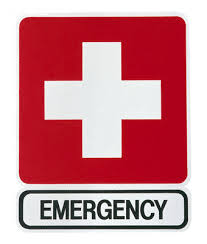emergency
英 [ɪˈmɜː.dʒən.si]
美 [ɪˈmɝː.dʒən.si]
- n. 紧急情况;突发事件;非常时刻
- adj. 紧急的;备用的
使用频率:

记忆方法
记忆“emergency”可以采用以下方法:想象一个“emergent”情况,即突然发生的情况,这种情况下需要采取紧急措施。通过将“emergent”和“ergency”结合,强调这是一个紧急状态,从而帮助记忆这个词。
以上内容由AI生成, 仅供参考和借鉴
中文词源
emergency 紧急情况
来自emerge, 出现,始料不及的情况。
英语词源
- emergency (n.)
- "unforeseen occurrence requiring immediate attention," 1630s, from Latin emergens, present participle of emergere "to rise out or up" (see emerge). Or from emerge + -ency. As an adjective by 1881.
权威例句
- 1. President Castro has warned Cubans to prepare for a profound economic emergency.
- 卡斯特罗主席已经提醒古巴人民为严重的经济危急状况做准备。
- 2. He vociferously opposed the state of emergency imposed by the government.
- 他激烈反对政府强行宣布进入紧急状态。
- 3. The government is taking emergency action to deal with a housing crisis.
- 政府正采取紧急措施解决住房危机。
- 4. Exceptionally, in times of emergency, we may send a team of experts.
- 在紧急情况下,我们可能会破例派一个专家小组。
- 5. Emergency workers fear that the burning ship could slip its moorings.
- 急救人员担心燃烧着的船只可能会脱链滑走。